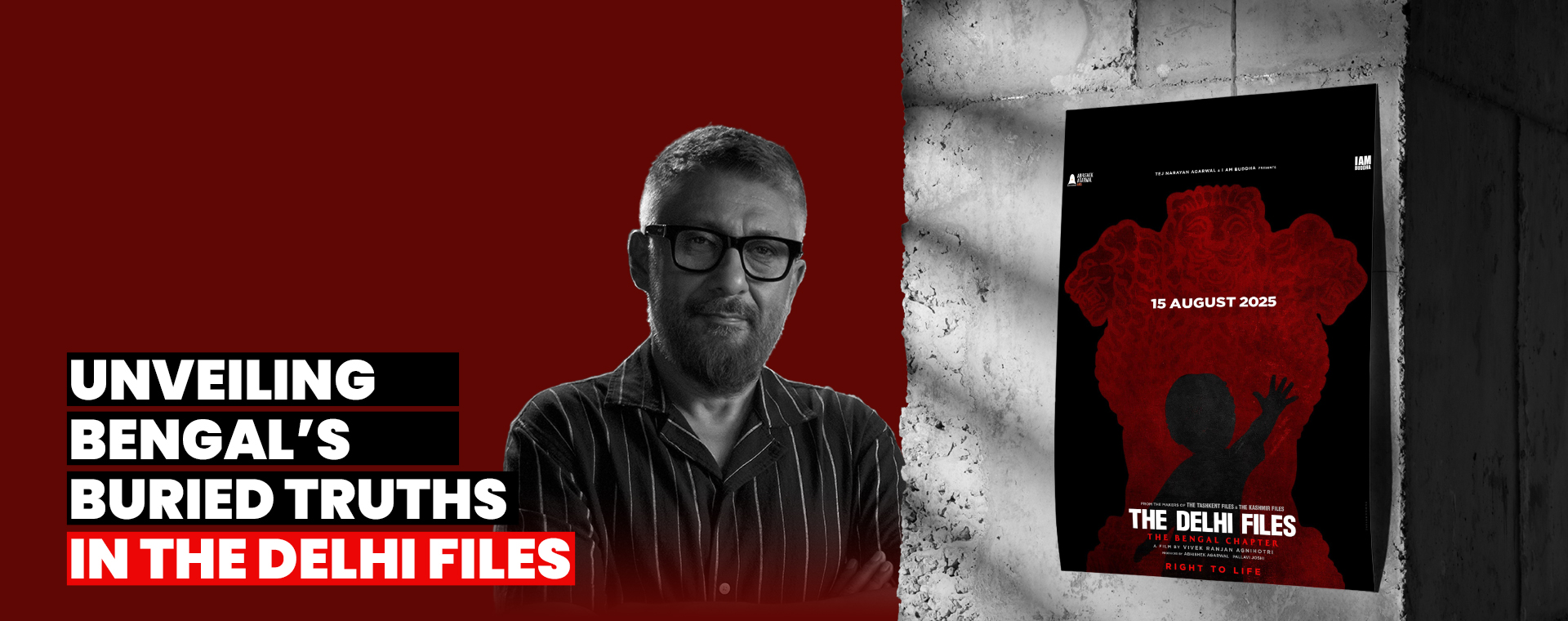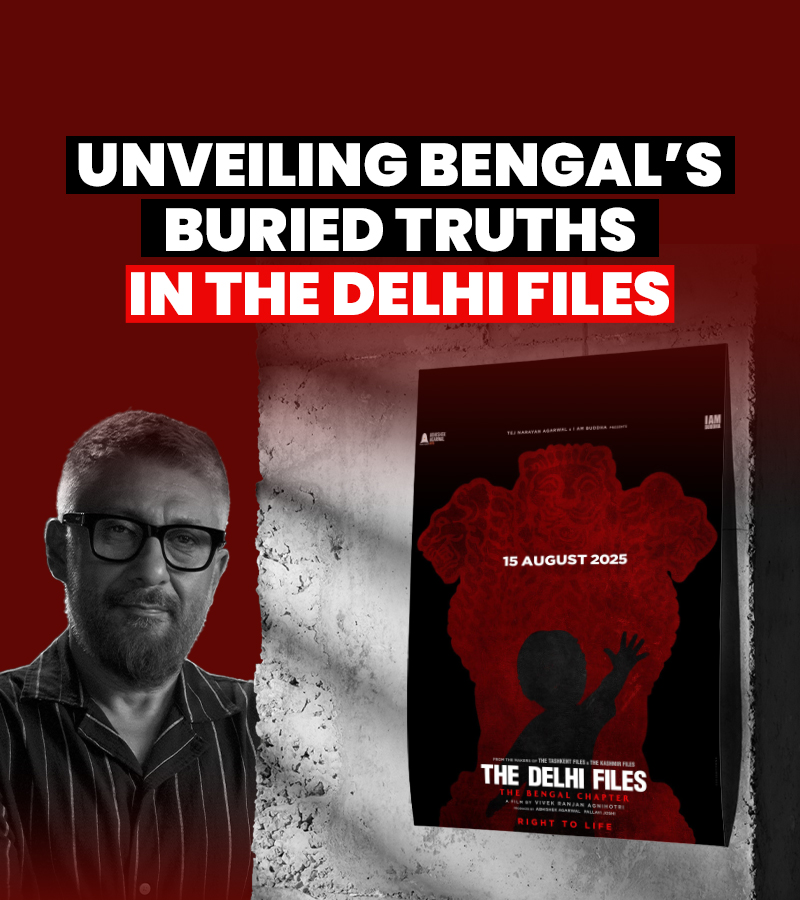

Unveiling Bengal’s Untold Story: A Look Ahead at Vivek Ranjan Agnihotri’s The Delhi Files
What can we expect from Agnihotri’s new film? Dive into the complexities of West Bengal’s history, the potential themes of the movie, and the debates it might ignite.
Vivek Ranjan Agnihotri, the director behind the thought-provoking film The Kashmir Files, has embarked on a new project titled The Delhi Files. Shrouded in intrigue, the film promises to delve into the complexities of West Bengal’s history and social landscape. This blog explores what audiences can expect from The Delhi Files, drawing upon Agnihotri’s own pronouncements and the historical context of Bengal.
A Director’s Quest: Unearthing Bengal’s “Real Story”
In a series of social media posts, Agnihotri documented his extensive research for the film, travelling across 20 states, interviewing locals, and delving into historical records. His focus seems to be on unveiling a hitherto untold narrative, as captured in his powerful statement, “बंगाल की असली कहानी, बंगालियों की ज़ुबानी” (The real story of Bengal, told by the Bengalis themselves). This tagline suggests a potential critique of existing narratives surrounding Bengal’s history, particularly those presented by mainstream media or dominant political ideologies.
A Divided Past: The Legacy of Partition and Conflict
Vivek Ranjan Agnihotri emphasises Bengal’s unique position as the only state partitioned twice. This historical trauma undoubtedly shaped the region’s social fabric. He further highlights a series of “genocides” that plagued Bengal, both before and after independence. Here, it’s important to note the lack of specific details surrounding these “genocides.” The film will explore lesser-known historical events or offer a fresh perspective on existing narratives about communal violence in Bengal.
A Complex Tapestry: Beyond Religion
While acknowledging the Hindu-Muslim conflict in post-independence India, Vivek Agnihotri points towards a more intricate web of ideologies in Bengal. He mentions the presence of Communism, its radical offshoot Naxalism, and a deep sense of loss regarding Bengal’s rich heritage. This multifaceted clash of ideologies, coupled with the psychological scars of partition, likely contributed to the state’s “decay” as Agnihotri suggests.
What to Expect: Themes in The Delhi Files
Based on Vivek Ranjan Agnihotri’s pronouncements and the historical context of Bengal, here are some themes that The Delhi Files might explore:
– The Legacy of Partition and its Continuing Impact: The film will explore the social and psychological scars left by Bengal’s partition, focusing on themes of displacement, identity crisis, and lingering national divisions.
– The Rise and Fall of Communism in Bengal: The dominance of the Left in Bengal’s political landscape will likely be a central theme. The film would explore the factors that led to the rise of Communism, its impact on the state’s development, and the reasons for its decline.
– Naxalism and its Influence: Agnihotri’s specific mention of Naxalism suggests the film will investigate the influence of this radical ideology on Bengal’s social landscape. Whether the film portrays Naxalism as a legitimate political force or a destabilising factor remains to be seen.
– A Critique of Existing Narratives: Agnihotri’s emphasis on presenting the “real story” suggests a potential challenge to established narratives about Bengal’s history. The film could offer a platform for voices and perspectives that have been marginalised in the past.
A Vision for the Future: #IndicRenaissance 2.0
Vivek Ranjan Agnihotri calls for a “true leader with empathy and vision” to lead Bengal towards an #IndicRenaissance 2.0. This suggests a potential underlying critique of the state’s current leadership and a yearning for a renewed focus on India’s cultural and intellectual heritage. However, the exact meaning of #IndicRenaissance 2.0 is unclear. Will the film advocate for a return to traditional values or promote a more inclusive and progressive vision of Indian identity? We will have to wait and watch the film to find out.
Unveiling the Curtain: What Lies Ahead?
The Delhi Files promises to stir conversation and challenge existing narratives about West Bengal. Agnihotri’s focus on historical context, the complex interplay of ideologies, and the lingering scars of partition suggest a multi-layered exploration of the region. The film will release on August 15, 2025, and audiences eagerly await to gain a deeper understanding of Bengal’s past and its potential impact on the future.
Conclusion: A Catalyst for Dialogue
Despite inevitable controversies, The Delhi Files has the potential to be a valuable contribution to public discourse about West Bengal. By sparking conversations about the region’s complex history and sociopolitical realities, the film can encourage a deeper understanding and a more nuanced perspective on Bengal’s positioning within India. Ultimately, the film’s success will depend on its ability to present a balanced and well-researched narrative while also fostering empathy and understanding among viewers.






